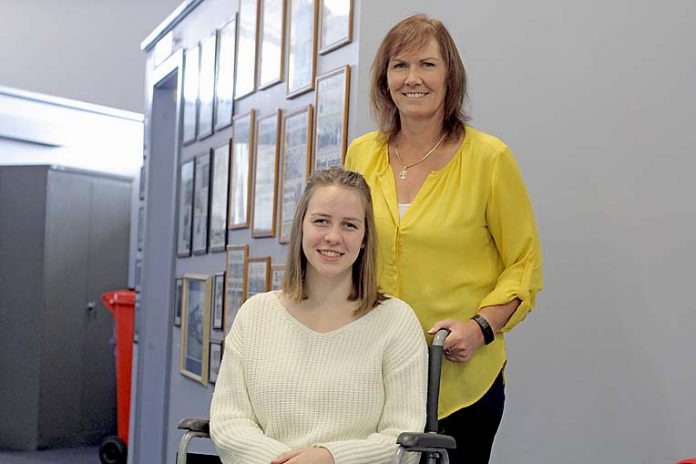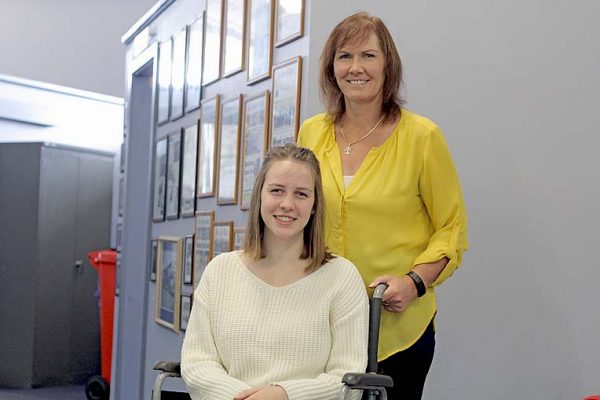

YAHL’S Tessa Deak is not an average 18-year-old.
As her friends celebrated Year 12 graduation last year, she welcomed a wheelchair into her life to improve her mobility.
Living with Myalgic Encephalomyelitis (ME) for four years, Tessa’s life and future goals have changed dramatically due to the heavy impact of her health condition.
Known to many as chronic fatigue syndrome, ME is more than just feeling tired.
It is a systemic neuroimmune condition characterised by post-exertional malaise – a severe worsening of symptoms after even minimal exertion.
It causes dysregulation of both the immune system and the nervous system with the effect devastating enough to leave 25pc of patients housebound or bedbound.
Despite the figure of an estimated 15-30 million people around the world suffering from the condition, ME continues to be misunderstood.
“I just want people to know this condition is real and extremely debilitating, which is why there needs to be more done about it,” Tessa said.
To help the South East gain an insight to the condition, Tessa and her mother Fiona Pulford are hosting a screening of the Sundance award-winning film Unrest.
Unrest tells the first-person story of Jennifer and her husband Omar, newlyweds grappling with how to live in the face of the debilitating lifelong illness of ME.
The film launches with an attached social impact campaign, Time for Unrest, which aims to increase the public’s knowledge of the little known disease, inform the community, encourage empathetic care from medical practitioners and encourage more research in countries throughout the world.
Tessa said when she and her family first watched Unrest, it was an emotional experience.
“It opened deeper conversation about the condition between my family and I, which is really important because we are all still learning,” she said.
“The film also gave me confidence to get the wheelchair, which was a mentally challenging decision.”
Despite being a high achiever, Tessa was unable to finish high school and has been stripped of her independence as a young
person.
She is limited to how much she can achieve in a day and is often unable to leave bed or speak.
“ME is twice as common as multiple sclerosis (MS), but we know next to nothing about it,” Tessa said.
“When I was younger, I always wanted to help people through the humanitarian field or as a psychologist, but now I will do what I can to help people like me.
“Hopefully we can raise awareness and encourage funding and research into ME.”
The screening will be held at the Main Corner Dress Circle on March 1 with donations accepted for the Millions Missing Campaign.







